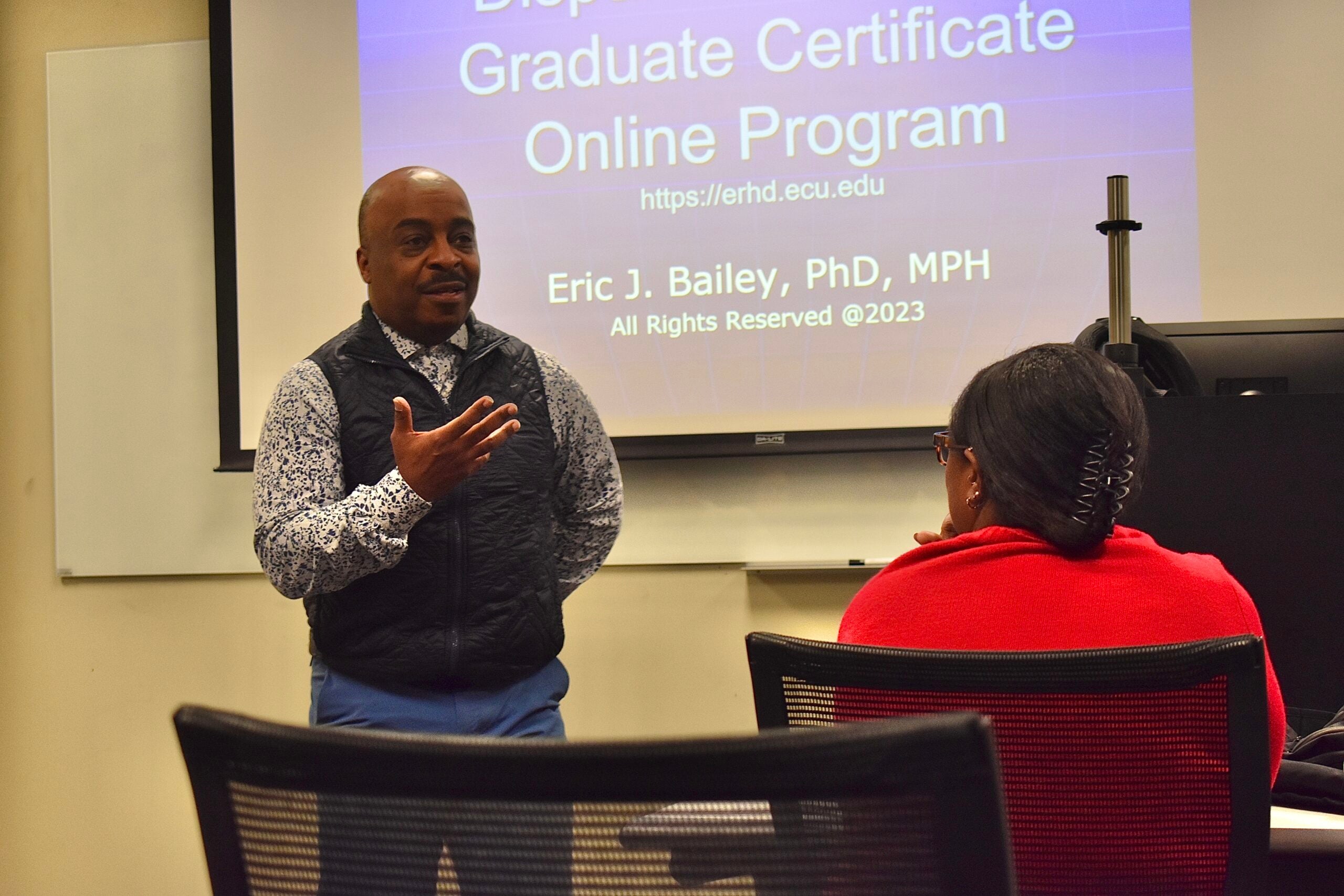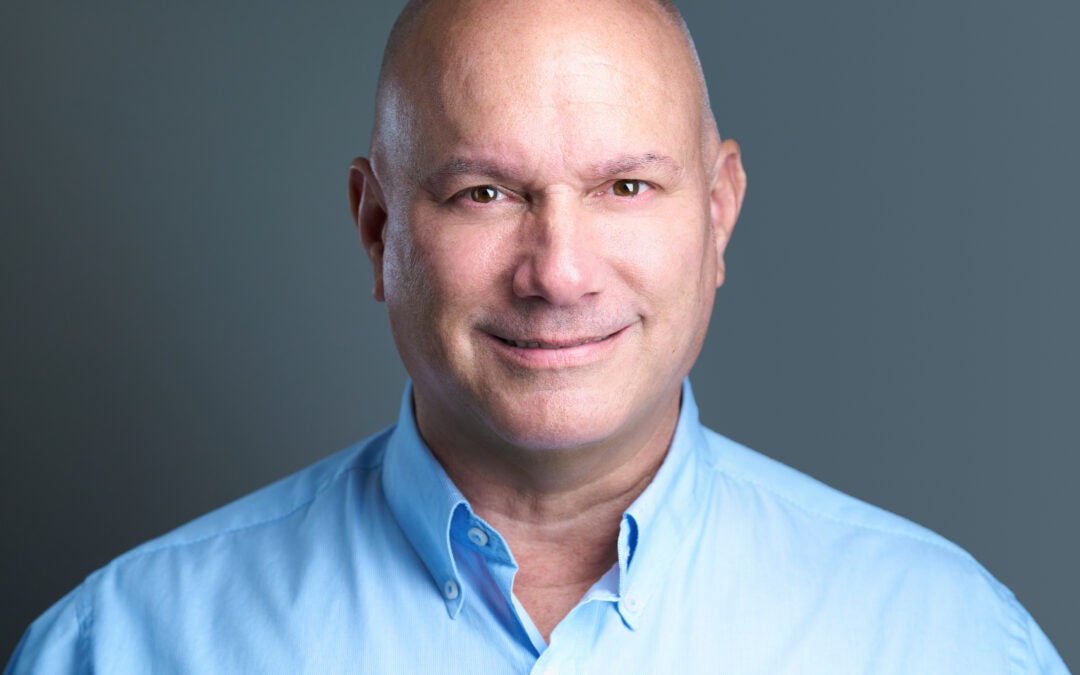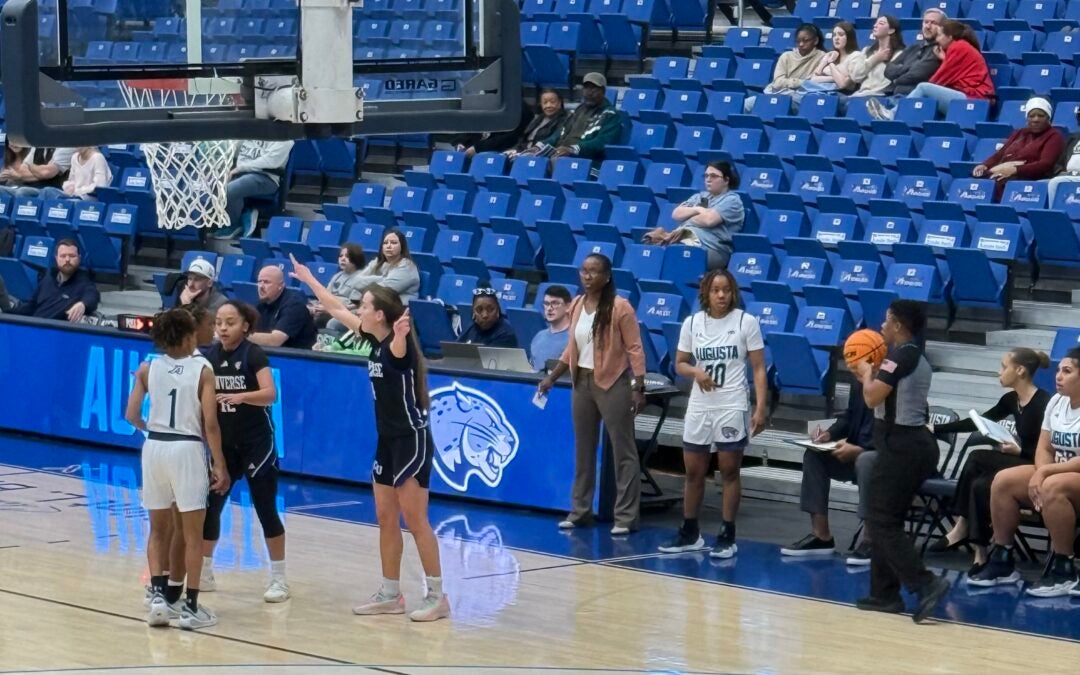To inspire students majoring in health services or soft sciences, Augusta University has invited Eric Bailey to guest lecture for several classes about the importance of remaining passionate and making strides in one’s chosen area of study.
Professor in the Department of Anthropology and the Department of Public Health at East Carolina University, Bailey is known for speaking at several colleges throughout the U.S. with a mission for instilling a renewed passion in students.
“I want students to connect with me … a lot of them are still hesitant to take chances,” he said. “… students are still wavering, but we’re desperately in need of healthcare professionals at the frontlines.”
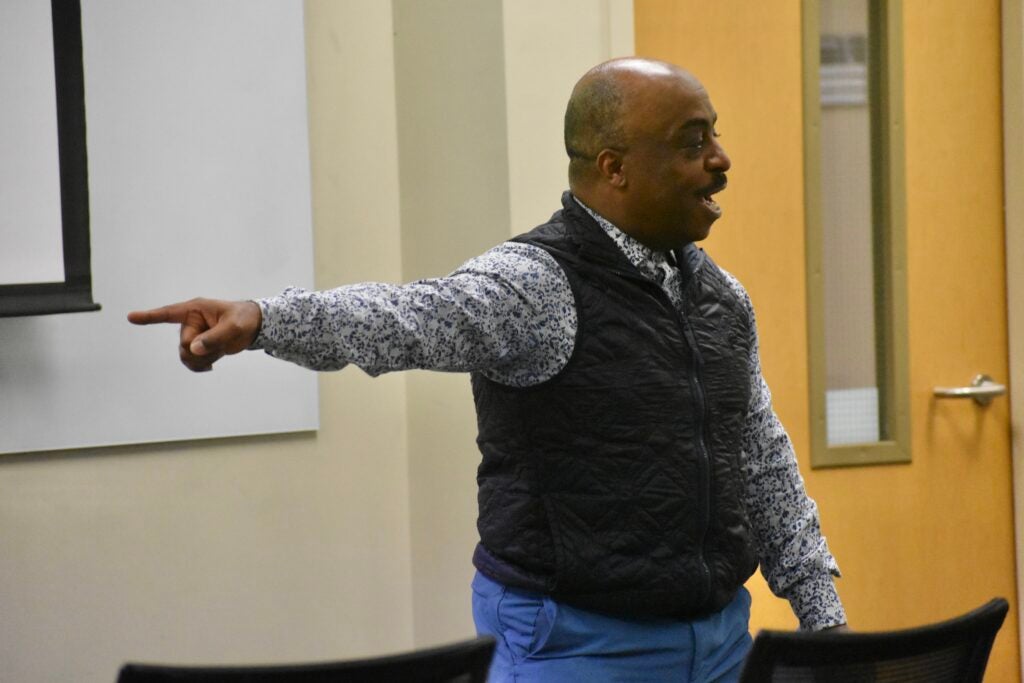
By sharing his own story of defying racial and occupational expectations in the 1970s and 80s as an African American, Bailey said he hopes college students walk away from his talks feeling encouraged to help, and become involved in more community affairs. He also said he believes many people are currently stuck in their own world, and fighting limited viewpoints takes time and having the courage to engage in uncomfortable conversations.
“We have to find ways to bring people, who are in different silos, together,” he said. “Oftentimes, there’s no go between and you have to walk people through it. You have to find that middle ground and see where they connect.”
Also the founder and director of the university’s new Ethnic and Rural Health Disparities online graduate program, Bailey said his own teaching style centers around challenging students to think outside-the-box and brainstorming new angles to solve old problems. By empowering students with a voice in their own university, Bailey said significant change can truly begin.
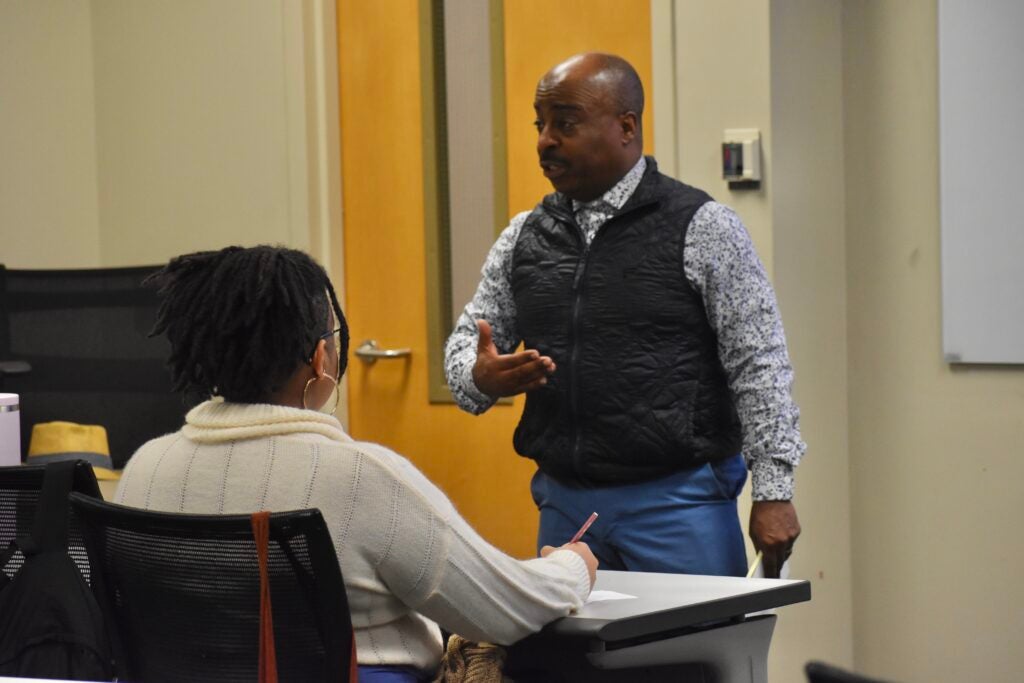
“That’s the thing about students, they feel – unfortunately – that their [student-led] activities and programs are not being seen or heard,” he said. “At every university I’ve been to, students need to know that they can make a difference, because they have all the new ideals.”
With his passion for creating relationships with students alongside powerful university and community figures, Bailey said he is extremely favorable towards teaching online courses because it gives him a wider reach of audiences, which assists his mission to help fix food disparities among especially African-American people.
To start addressing nearby food and health disparities with students and neighbors, Bailey suggested Augusta University staff focus on actively inviting and seeking increased community involvement, in order for more diverse voices to be included in significant conversations.
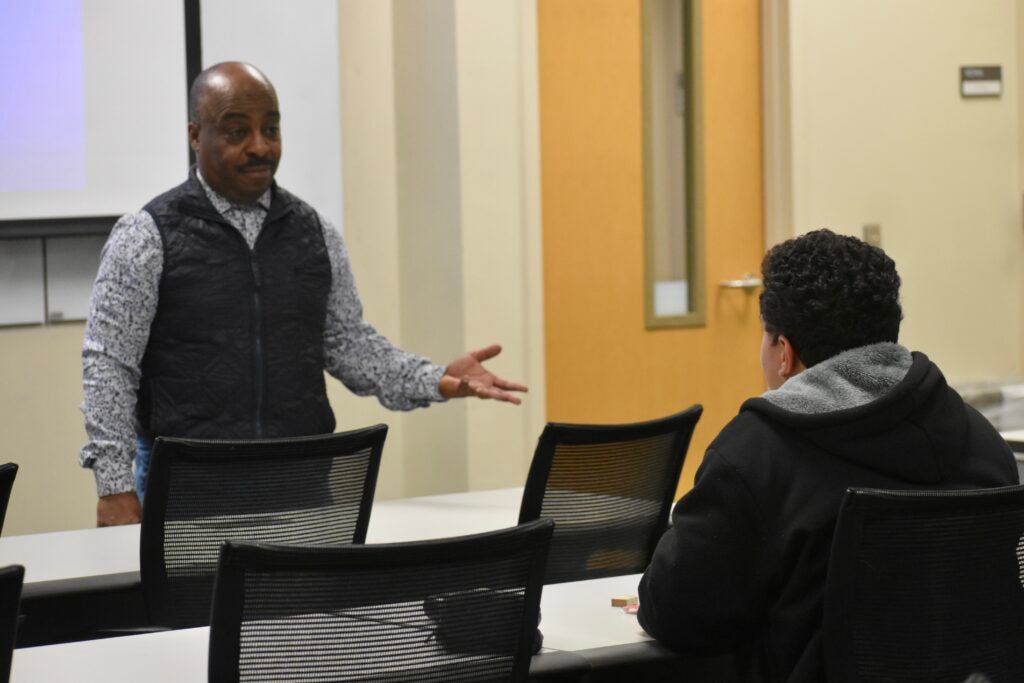
“I think it’s very critical for Augusta and Augusta University to get more folks of the community, in some form or fashion, on board, because that’s going to help things in the long run – not just in the short run,” he said. “You want to get more buy-in, you want to get more folks that are going to push your mission, your vision, and support it. You want as many folks as possible in the planning phase.”
Bailey said it is also important for students within the medical field to realize the significance of looking at medicine from many different angles – such as psychology, anthropology, sociology and more.
“Many times those non-traditional students come with a new creativity and new orientation, and that’s what’s desperately needed in public health and medicine,” he said. “… not the same generic ideals from the same model of public health – we need new ideals from other disciplines.”
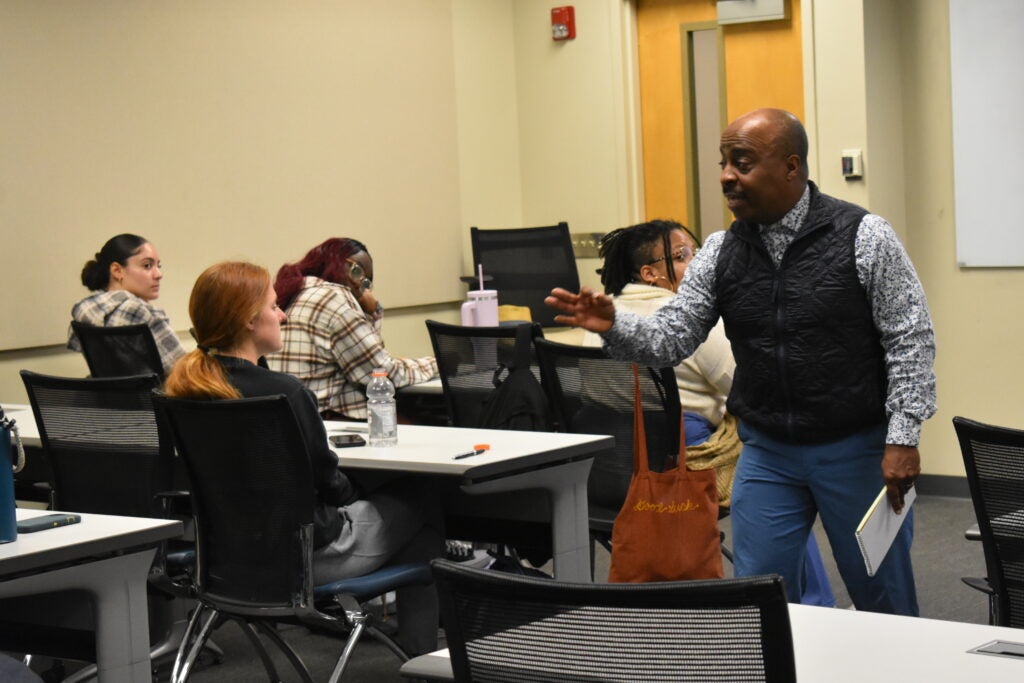
Utilizing his expertise in cultural anthropology to connect with communities, Bailey said his visit to Augusta has opened his eyes to community problems within the local neighborhoods as well as the university’s student body.
“It’s our responsibility as a university to take care of and adhere to local residents and people that are living in these high disparity counties, and that’s what’s happening in most places that I’ve been … we all have to learn about each and every population,” he said.
Giving a presentation about food choice and African American obesity in America, in partnership with Augusta University’s Pamplin College and the Institute of Public and Preventative Health, Bailey is inviting the community to chat with him on Thursday, Nov. 16, at 6 p.m. in the Augusta-Richmond County Library, located at 823 Telfair St.
For more information, please visit: https://calendar.augusta.edu/event/community-presentation-lets-get-real-about-food-choice–obesity-in-black-america-presented-by-dr-eric-bailey/

